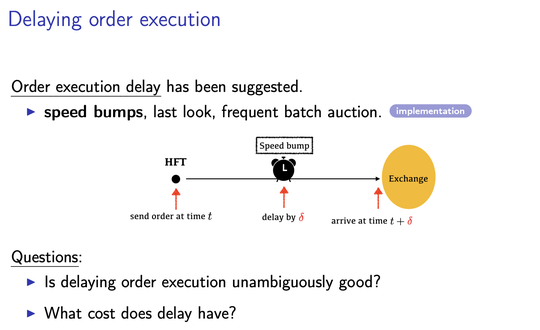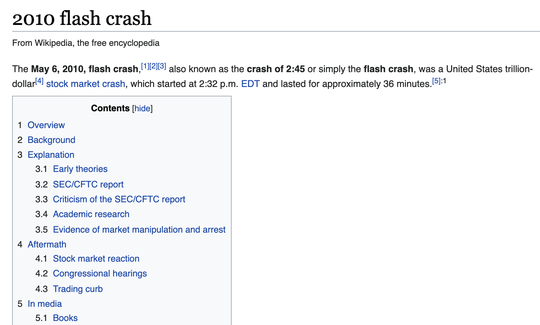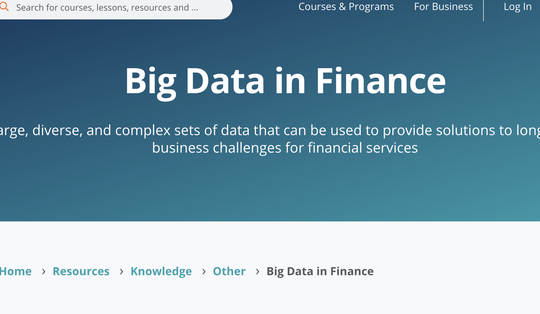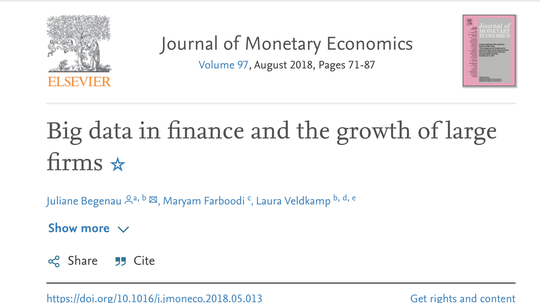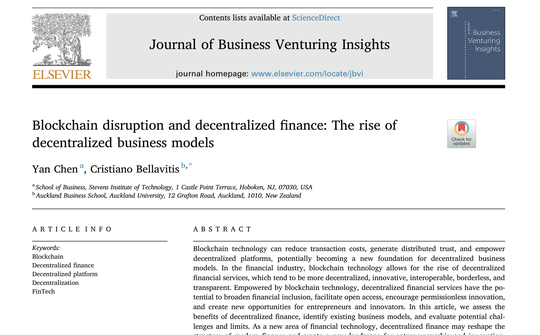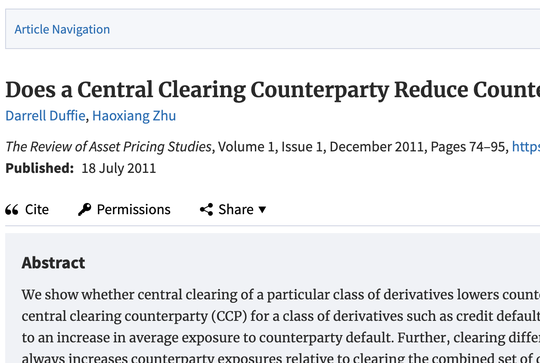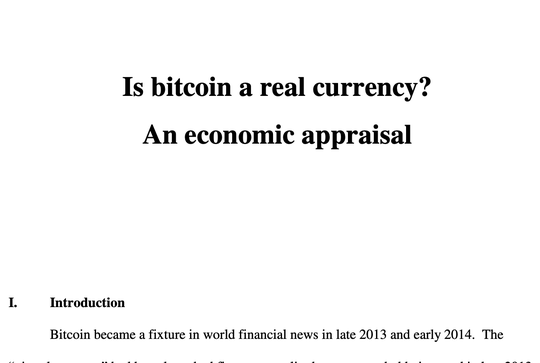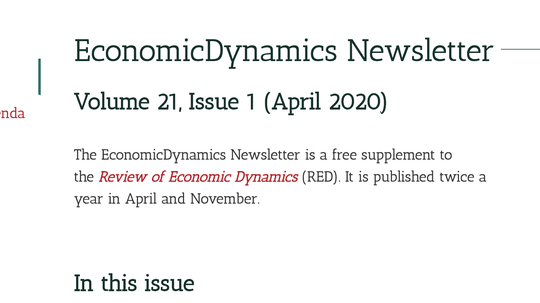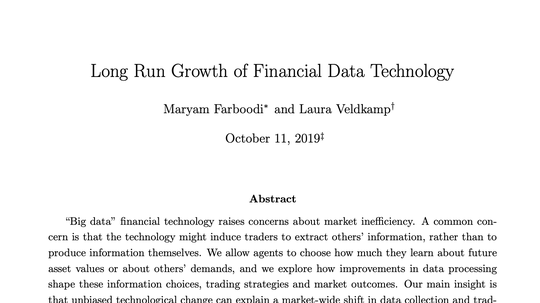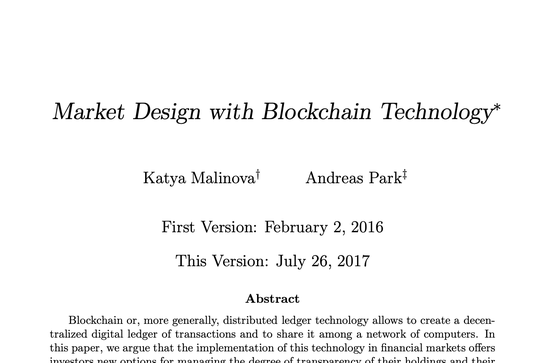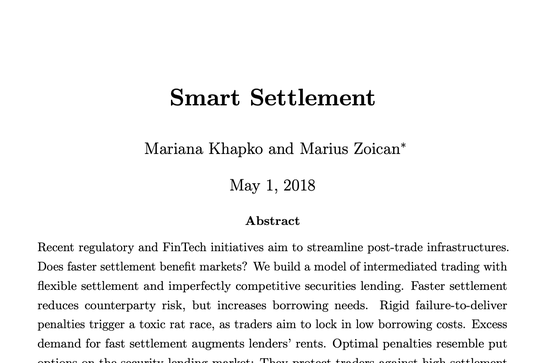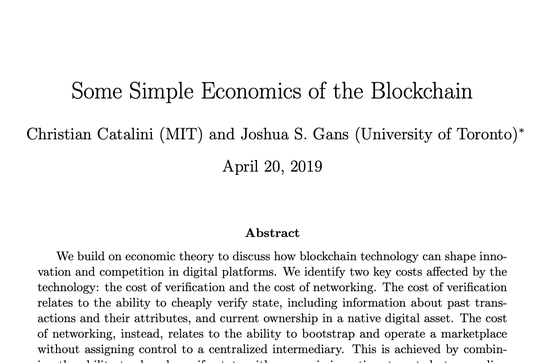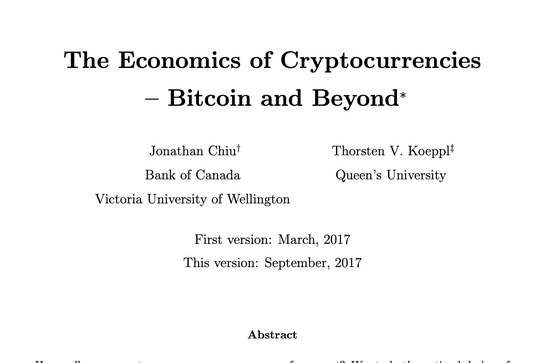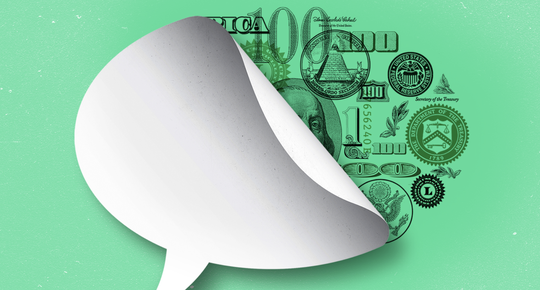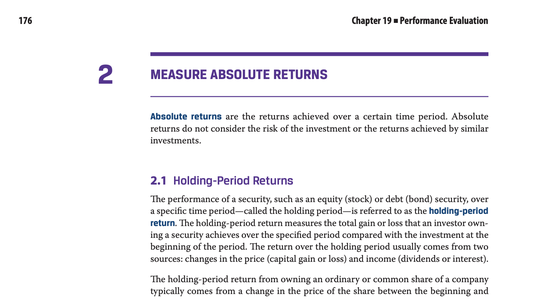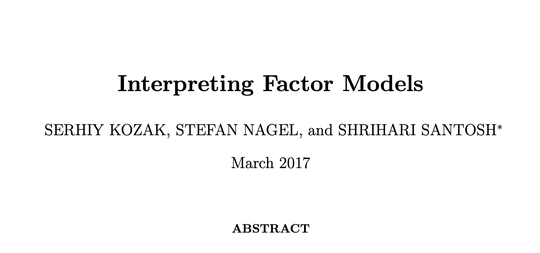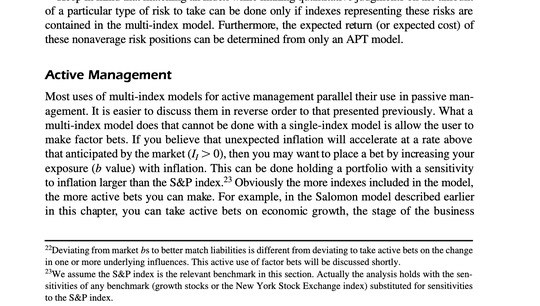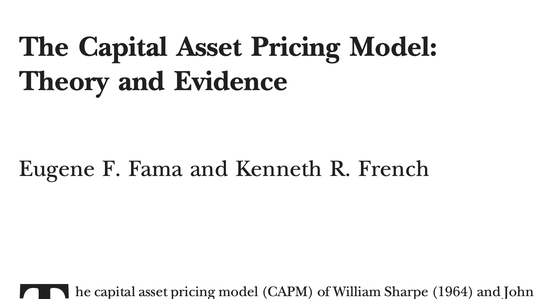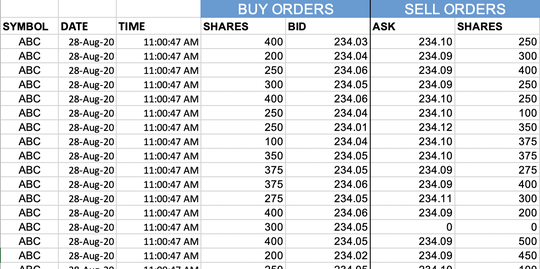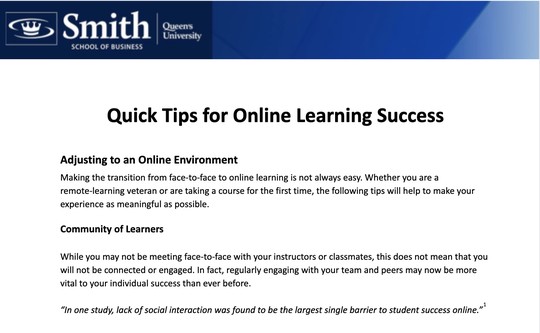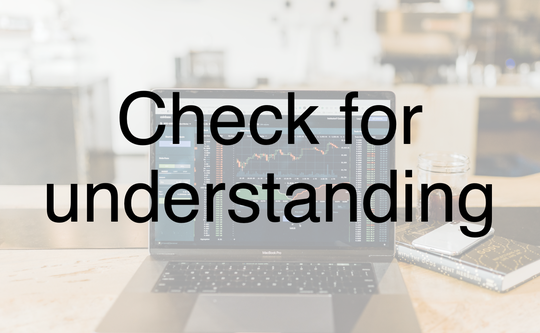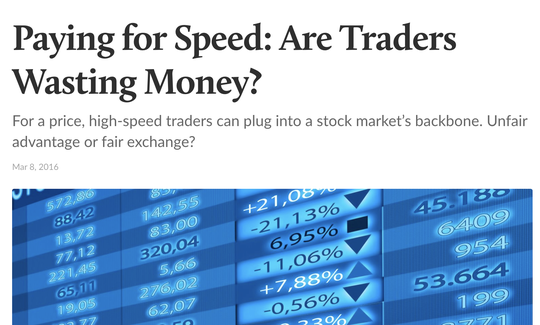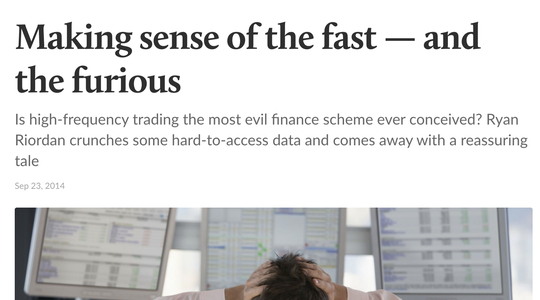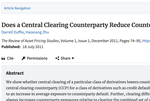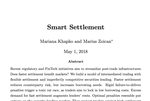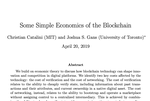.js-id-readings10mand
CBOE dives into Canadian dark pool trading with acquisition
Ed Tilly, president and CEO of CBOE Global Markets, discusses the acquisition of Canadian alternative trading system MatchNow, which is the largest provider of dark pool trading in the country.
n.d., BNN Bloomberg
n.d., BNN Bloomberg
Dark Pool Trading System & Regulation
The effective regulation of “dark pools”, which are private forums for trading securities, is necessary to secure efficient trade execution, and to ensure transparent and fair markets as a means of fostering confidence and trust in trading markets.
n.d., CFA Institute
n.d., CFA Institute
Dark Side of Delaying Order Execution
High-frequency trading (HFT) firms provide and take liquidity using speed and superior information.
Sep 30, 2020, Jun Aoyagi
Sep 30, 2020, Jun Aoyagi
2010 Flash Crash
The May 6, 2010 flash crash was a United States trillion-dollar stock market crash, which started at 2:32 p.m. EDT and lasted for approximately 36 minutes.
Sep 26, 2020, Various Authors
Sep 26, 2020, Various Authors
Big Data in Finance
Big data in finance refers to large, diverse (structured and unstructured) and complex sets of data that can be used to provide solutions to long-standing business challenges for financial services and banking companies around the world.
n.d., Corporate Finance Institute
n.d., Corporate Finance Institute
Big data in finance and the growth of large firms
Two modern economic trends are the increase in firm size and advances in information technology. We explore the hypothesis that big data disproportionately benefits big firms.
August 2018, Begenau, Farboodi & Veldkamp
August 2018, Begenau, Farboodi & Veldkamp
Blockchain disruption and decentralized finance - The rise of decentralized business models
Blockchain technology can reduce transaction costs, generate distributed trust, and empower decentralized platforms, potentially becoming a new foundation for decentralized business models.
June 2020, Yan Chen & Cristiano Bellavitis
June 2020, Yan Chen & Cristiano Bellavitis
Does a Central Clearing Counterparty Reduce Counterparty Risk?
We show whether central clearing of a particular class of derivatives lowers counterparty risk. For plausible cases, adding a central clearing counterparty (CCP) for a class of derivatives such as credit default swaps reduces netting efficiency, leading to an increase in average exposure to counterparty default.
July 18, 2011, Darrell Duffie & Haoxiang Zhu
July 18, 2011, Darrell Duffie & Haoxiang Zhu
Flash Crash — the trading savant who crashed the US stock market
Liam Vaughan’s account of maths prodigy Navinder Sarao is a cautionary tale on modern finance.
May 7, 2020, Katie Martin
May 7, 2020, Katie Martin
Is Bitcoin a Real Currency? An economic appraisal
A bona fide currency functions as a medium of exchange, a store of value, and a unit of account, but bitcoin largely fails to satisfy these criteria.
April, 2014, David Yermack
April, 2014, David Yermack
Laura Veldkamp on Modeling and Measuring the Data Economy
The five largest American companies derive most of their value not from physical assets, but from intangibles ones, like data. Data and new data technologies are changing production, labor and valuation.
April 2020, Veldkamp
April 2020, Veldkamp
Long Run Growth of Financial Data Technology
“Big data” financial technology raises concerns about market inefficiency. A common concern is that the technology might induce traders to extract others’ information, rather than to produce information themselves.
October 2019, Farboodi & Veldkamp
October 2019, Farboodi & Veldkamp
Market Design with Blockchain Technology
Blockchain or, more generally, distributed ledger technology allows to create a decentralized digital ledger of transactions and to share it among a network of computers.
July 26, 2017, Katya Malinova & Andreas Park
July 26, 2017, Katya Malinova & Andreas Park
Smart Settlement
Recent regulatory and FinTech initiatives aim to streamline post-trade infrastructures. Does faster settlement benefit markets?
May 1, 2018, Mariana Khapko & Marius Zoican
May 1, 2018, Mariana Khapko & Marius Zoican
Some Simple Economics of the Blockchain
We build on economic theory to discuss how blockchain technology can shape innovation and competition in digital platforms.
April 20, 2019, Christian Catalini & Joshua S. Gans
April 20, 2019, Christian Catalini & Joshua S. Gans
The Economics of Cryptocurrencies – Bitcoin and Beyond
How well can a cryptocurrency serve as a means of payment? We study the optimal design of cryptocurrencies and assess quantitatively how well such currencies can support bilateral trade.
September 1, 2017, Jonathan Chiu & Thorsten V. Koeppl
September 1, 2017, Jonathan Chiu & Thorsten V. Koeppl
Why finance is deploying natural language processing
Big data in finance refers to large, diverse (structured and unstructured) and complex sets of data that can be used to provide solutions to long-standing business challenges for financial services and banking companies around the world.
Nov 3, 2020, Tracy Mayor
Nov 3, 2020, Tracy Mayor
Chapter 19 - Performance Evaluation
Read pages 176 - 188; review the examples, but you may skip over the exhibits.
Key topics - risk and return, expected return, market risk, Sharpe ratio
2014, Andrew Clare
Key topics - risk and return, expected return, market risk, Sharpe ratio
2014, Andrew Clare
FCA researchers outline $5bn ‘tax’ imposed by high-speed trading
Paper released by UK regulators homes in on tactic known as latency arbitrage.
Jan 27, 2020, Philip Stafford
Jan 27, 2020, Philip Stafford
Interpreting Factor Models
Optional reading.
2017, Kozak, Nagel and Santosh
2017, Kozak, Nagel and Santosh
Modern Portfolio Theory and Investment Analysis, 9e - Chapter 16
Read pages 385 - 394.
Key topics - passive/active investing, factor investing, statistical models
2014, Edwin Elton, Stephen Brown, William Goetzmann & Martin Gruber
Key topics - passive/active investing, factor investing, statistical models
2014, Edwin Elton, Stephen Brown, William Goetzmann & Martin Gruber
The Capital Asset Pricing Model - Theory and Evidence
Read pages 25 - 30.
Key topics - CAPM
2004, Eugene Fama and Kenneth French
Key topics - CAPM
2004, Eugene Fama and Kenneth French
The Economics of Complex Decision Making - The Emergence of the Robo Adviser
Please review the full text.
2017, Fisch, Laboure & Turner
2017, Fisch, Laboure & Turner
Pre-Course Survey (Section 1)
Please complete this survey if you are enrolled in Section 1.
Pre-Course Survey (Section 2)
Please complete this survey if you are enrolled in Section 2.
Quick Tips for Online Learning Success
Whether you are a remote-learning veteran or are taking a course for the first time, the following tips will help to make your experience as meaningful as possible.
Session 1 - Introduction to Course
Welcome to MFIN841!
Session 10 Quiz
This quiz will count towards your individual participation grade. Ensure you have completed all mandatory readings before starting the quiz (they will be tested). Please note that these quizzes are being assessed on a participation basis only; full marks will be given to those that complete the quiz (scores will not affect the participation grade).
Session 11 Quiz
This quiz will count towards your individual participation grade. Ensure you have completed all mandatory readings before starting the quiz (they will be tested). Please note that these quizzes are being assessed on a participation basis only; full marks will be given to those that complete the quiz (scores will not affect the participation grade).
Session 2 Quiz
This quiz will count towards your individual participation grade. Ensure you have completed all mandatory readings before starting the quiz. Only entries submitted prior to the beginning of next class will be accepted. Please note that these quizzes are being assessed on a participation basis only; full marks will be given to those that complete the quiz (scores will not affect the participation grade).
Session 3 Quiz
This quiz will count towards your individual participation grade. Ensure you have completed all mandatory readings before starting the quiz. Only entries submitted prior to the beginning of next class will be accepted. Please note that these quizzes are being assessed on a participation basis only; full marks will be given to those that complete the quiz (scores will not affect the participation grade).
Session 4 Quiz
This quiz will count towards your individual participation grade. Ensure you have completed all mandatory readings before starting the quiz (they will be tested). Only entries submitted prior to the beginning of next class will be accepted. Please note that these quizzes are being assessed on a participation basis only; full marks will be given to those that complete the quiz (scores will not affect the participation grade).
Session 5 Quiz
This quiz will count towards your individual participation grade. Ensure you have completed all mandatory readings before starting the quiz (they will be tested). Only entries submitted prior to the beginning of next class will be accepted. Please note that these quizzes are being assessed on a participation basis only; full marks will be given to those that complete the quiz (scores will not affect the participation grade).
Session 6 Quiz
This quiz will count towards your individual participation grade. Ensure you have completed all mandatory readings before starting the quiz (they will be tested). Only entries submitted prior to the beginning of next class will be accepted. Please note that these quizzes are being assessed on a participation basis only; full marks will be given to those that complete the quiz (scores will not affect the participation grade).
Session 8 Quiz
This quiz will count towards your individual participation grade. Ensure you have completed all mandatory readings before starting the quiz (they will be tested). Only entries submitted prior to the beginning of next class will be accepted. Please note that these quizzes are being assessed on a participation basis only; full marks will be given to those that complete the quiz (scores will not affect the participation grade).
Session 9 Quiz
This quiz will count towards your individual participation grade. Ensure you have completed all mandatory readings before starting the quiz (they will be tested). Only entries submitted prior to the beginning of next class will be accepted. Please note that these quizzes are being assessed on a participation basis only; full marks will be given to those that complete the quiz (scores will not affect the participation grade).
Paying for Speed- Are Traders Wasting Money?
For a price, high-speed traders can plug into a stock market’s backbone. Unfair advantage or fair exchange?
Mar 8, 2016, Anna Sharratt
Mar 8, 2016, Anna Sharratt
Robot Auction Bidders Are Such Buzzkills
Competing against automated agents induces auction bidders to skip risky behaviour.
Oct 21, 2015, Kenza Moller
Oct 21, 2015, Kenza Moller
Making Sense of the Fast — and the Furious
Is high-frequency trading the most evil finance scheme ever conceived? Ryan Riordan crunches some hard-to-access data and comes away with a reassuring tale.
Sep 23, 2014, Anna Sharratt
Sep 23, 2014, Anna Sharratt
Money & Speed- Inside the Black Box (Optional)
Optional (long, but worth watching if you have time) - Based on interviews with those directly involved and data visualizations up to the millisecond, it reconstructs the flash crash of May 6th 2010.
Dec 13, 2012, VPRO
Dec 13, 2012, VPRO


